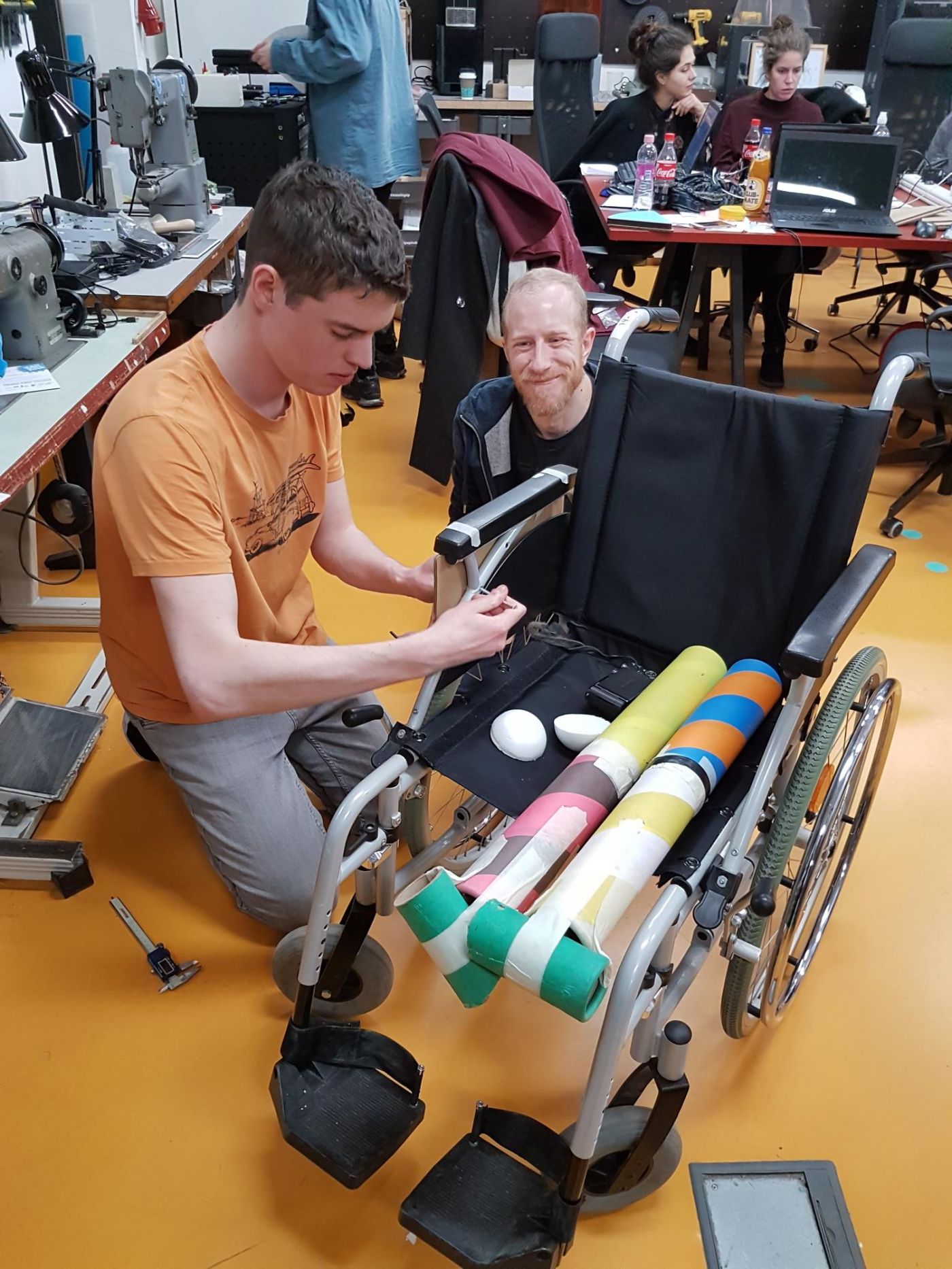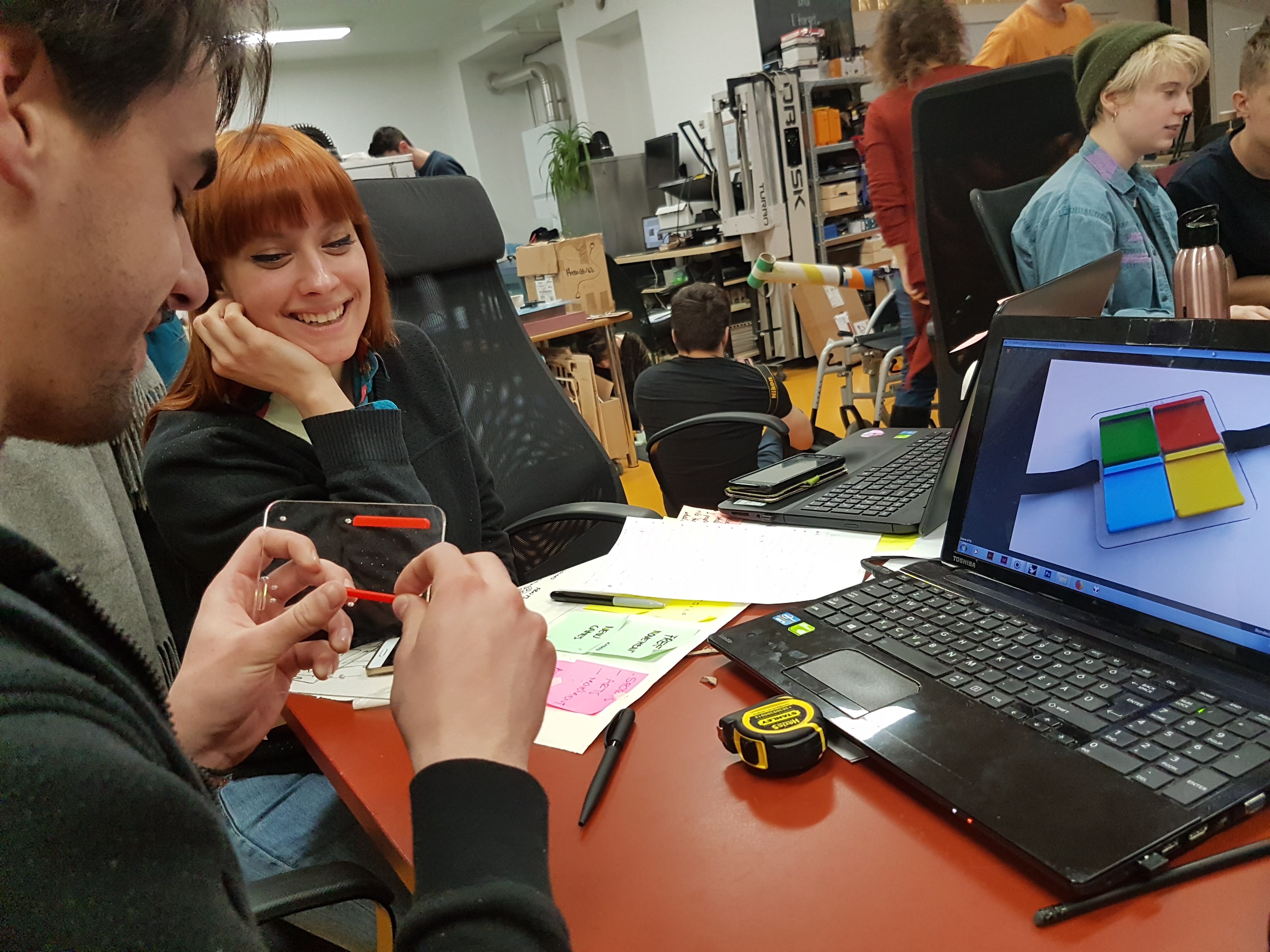Co-designing for Inclusion
R.Dezsö-Dinnyés, L. Lukács, H.Mannsberger, R. Mateus-Berr, G.Urrutia-Reyes, J. Rosoklija, S.Trimmel
The objective of this project is to foster knowledge-sharing among interdisciplinary and international teams: students of social design and teacher education from Austria, and design students from Hungary, by collaborating with inclusive schools and co-designing and developing individualized design tools for children with special needs.
Our vision for the future of work is that artists and designers will be integrated in the design process, asking unexpected questions as members of interdisciplinary teams fostering innovation. Also, artistic research will more and more investigate into the fields of science with their unique approaches. Divergent thinking will synchronize fragmented work. The objective of this project is to foster knowledge-sharing among interdisciplinary and international teams by collaborating with inclusive schools. Through a co-design approach in interdisciplinary international teams - 17 students of social design and teacher education from Austria, and design students from Hungary - developed individualized design tools for children with special needs.
The methods used were “research through design, practice-based” and “design thinking”. In August 2014 the European Commission introduced the notion of “education that suits”. Since then, all schools are responsible for placing every child, including those with special educational needs, in a suitable educational setting, preferably in mainstream education. “Inclusion” here differs from “social inclusion,” which connotes children with diverse migrant and social backgrounds, as opposed to children with (multiple) handicaps. This strategy requires changes in education within the art and design subjects and societal changes of engagement in general according to Victor Papanek and his “Desire of a Social Turn” (in “Design for the Real World, Human Ecology and Social Change: Design of Teaching and Learning Media for People with Disabilities”). This project explores the engagement with children with multiple disabilities and designing things for them in order to develop empathic and inter/transdisciplinary skills. It analyses a practice-based approach in design though observation, self-reflection, documentation and interviews conducted by students. The project was presented at the conference: Teaching Artistic Research in 2018 in Vienna.





- Time
- 2018
- Team
- R.Dezsö-Dinnyés
- L. Lukács
- H.Mannsberger
- R. Mateus-Berr
- G.Urrutia-Reyes
- J. Rosoklija
- S.Trimmel